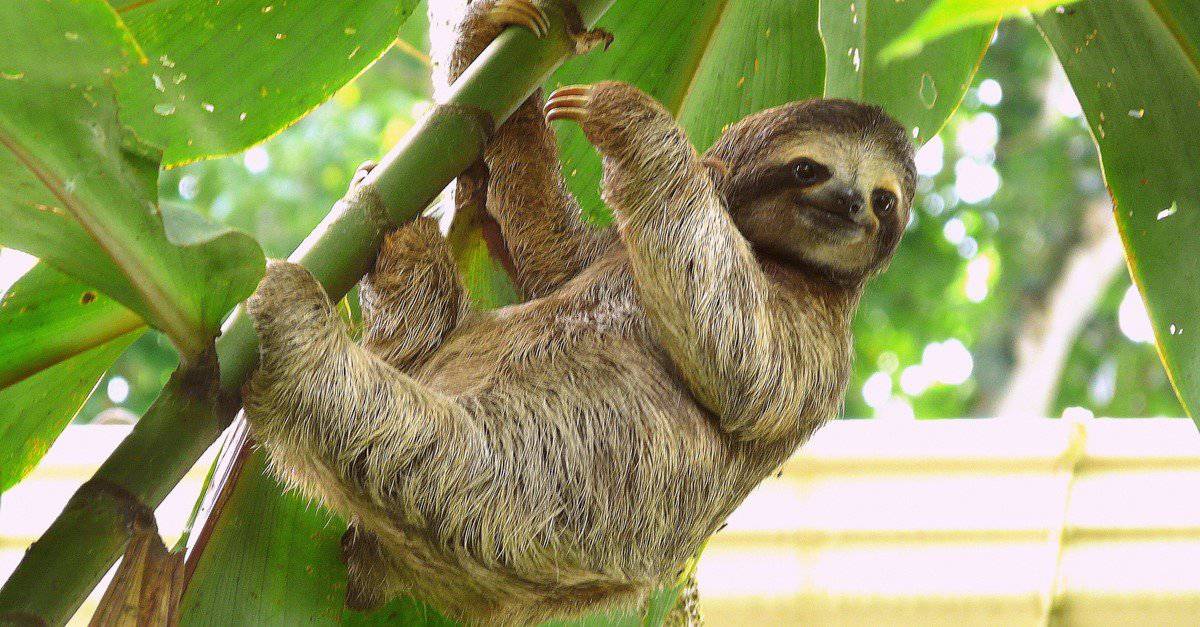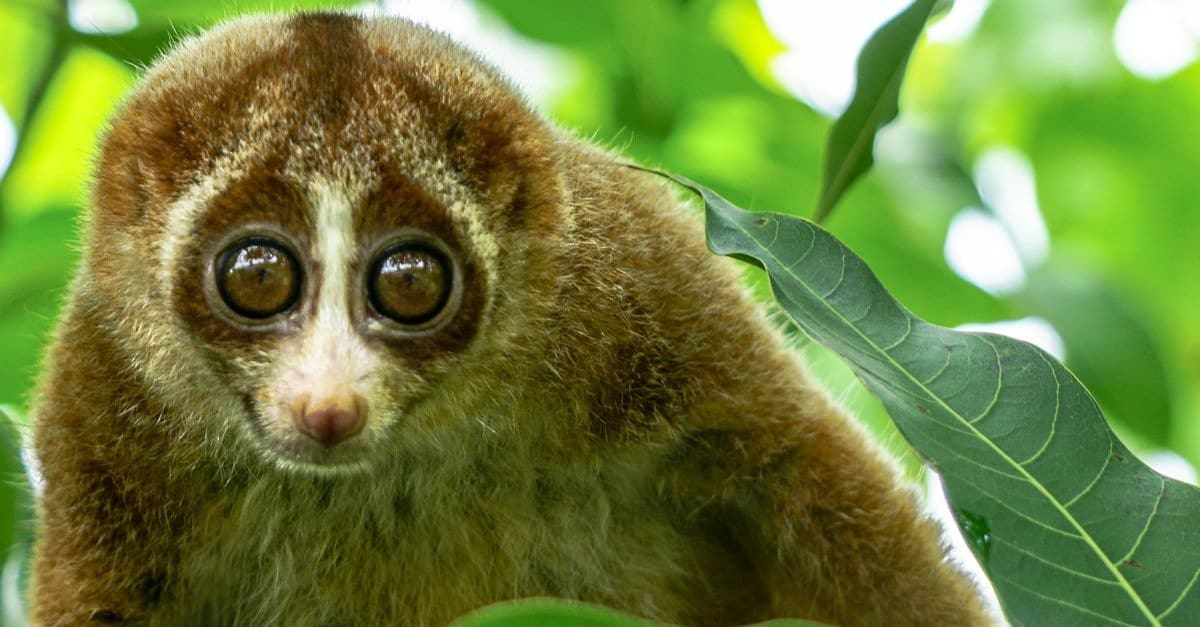The "Dumbest Animal in the World"
The concept of the "dumbest animal in the world" is a subjective and unscientific notion that lacks a clear definition or consensus among scientists. Intelligence in animals is a complex and multifaceted trait that can vary greatly depending on the species, environment, and individual. Assigning a universal label of "dumbest" to any animal is not only inaccurate but also potentially harmful, as it perpetuates misconceptions and undermines the importance of biodiversity.
Every animal species has evolved unique adaptations and cognitive abilities that allow it to survive and thrive in its specific ecological niche. Rather than focusing on arbitrary rankings of intelligence, it is more meaningful to appreciate the diverse and remarkable ways in which animals have adapted to their environments. By recognizing and valuing the unique contributions of each species, we can foster a more inclusive and respectful understanding of the natural world.
The "Dumbest Animal in the World"
The notion of the "dumbest animal in the world" is a flawed and arbitrary concept that lacks scientific basis. Intelligence in animals is a complex and multifaceted trait that varies greatly depending on the species, environment, and individual. Assigning a universal label of "dumbest" to any animal is not only inaccurate but also potentially harmful, as it perpetuates misconceptions and undermines the importance of biodiversity.
- Subjectivity: The concept of "dumbness" is subjective and based on human perceptions, which may not accurately reflect the cognitive abilities of animals.
- Diversity: Animal intelligence varies widely across species, and each species has unique adaptations and cognitive abilities that allow it to thrive in its specific ecological niche.
- Complexity: Intelligence is not a single, unidimensional trait, but rather a complex combination of cognitive skills, problem-solving abilities, and social behaviors.
- Environmental factors: Environmental factors, such as access to resources and social interactions, can significantly influence an animal's cognitive development and behavior.
- Individual variation: Even within a single species, there can be significant individual variation in cognitive abilities and intelligence.
- Anthropocentrism: The concept of "dumbness" often reflects human biases and anthropocentric views that prioritize certain cognitive abilities over others.
Rather than focusing on arbitrary rankings of intelligence, it is more meaningful to appreciate the diverse and remarkable ways in which animals have adapted to their environments. By recognizing and valuing the unique contributions of each species, we can foster a more inclusive and respectful understanding of the natural world.
Subjectivity
The notion of the "dumbest animal in the world" is inherently subjective, as it is based on human perceptions and values. What one person may consider to be "dumb" behavior may be perfectly normal or even intelligent for another species. For example, a sloth may appear to be slow and clumsy to a human observer, but its slow movements are an adaptation that helps it conserve energy and avoid predators in its rainforest habitat.
- Cultural biases: Different cultures have different perceptions of what constitutes "intelligence" in animals. For example, in some cultures, animals that are able to perform tricks or follow commands are considered to be intelligent, while in other cultures, animals that are able to solve problems independently or exhibit social intelligence are more highly valued.
- Anthropocentrism: The concept of "dumbness" often reflects human-centered biases that prioritize certain cognitive abilities over others. For example, humans tend to value logical reasoning and language skills, while other animals may excel in different cognitive domains, such as spatial navigation or social cognition.
- Lack of understanding: Our limited understanding of animal cognition can lead us to make inaccurate assumptions about their intelligence. For example, just because an animal does not respond to human commands or communicate in a way that we can understand does not mean that it is not intelligent.
It is important to recognize the subjectivity of the concept of "dumbness" and to avoid making generalizations about the intelligence of entire species based on limited observations or human-centered biases. By appreciating the diversity of animal cognition and valuing the unique contributions of each species, we can foster a more inclusive and respectful understanding of the natural world.
Diversity
The concept of the "dumbest animal in the world" is flawed because it fails to recognize the vast diversity of animal intelligence. Each species has evolved unique cognitive abilities and adaptations that allow it to survive and thrive in its specific environment. For example, a bat's ability to use echolocation to navigate and find prey would be considered "dumb" if judged by human standards, but it is essential for the bat's survival. Similarly, a dung beetle's ability to navigate using the stars or an ant's ability to communicate using pheromones are remarkable adaptations that allow these species to thrive in their respective ecological niches.
By appreciating the diversity of animal intelligence, we can challenge the notion of a "dumbest animal" and recognize the unique contributions of each species to the natural world. Embracing this diversity fosters a more inclusive and respectful understanding of the animal kingdom and highlights the importance of protecting all species, regardless of their perceived intelligence.
Furthermore, understanding the diversity of animal intelligence has practical significance for conservation and animal welfare. By recognizing the unique cognitive abilities of different species, we can develop more effective conservation strategies and provide appropriate care and enrichment for animals in captivity. For example, providing environmental enrichment that challenges an animal's cognitive abilities can improve its well-being and prevent boredom.
Complexity
The notion of the "dumbest animal in the world" is simplistic and fails to capture the complexity of animal intelligence. Intelligence is not a single, unidimensional trait, but rather a complex combination of cognitive skills, problem-solving abilities, and social behaviors. Each species has evolved unique combinations of these abilities, which allow them to survive and thrive in their specific ecological niches.
For example, a bird's ability to navigate long distances using magnetic cues, a dolphin's ability to communicate using complex vocalizations, and a chimpanzee's ability to use tools to solve problems are all examples of specialized cognitive abilities that have evolved in response to specific environmental pressures. To label any of these animals as "dumb" simply because they do not possess the same cognitive abilities as humans is a narrow and misleading assessment.
By recognizing the complexity of animal intelligence, we can challenge the idea of a "dumbest animal" and appreciate the diverse and remarkable ways in which animals have adapted to their environments. This understanding has practical significance for conservation and animal welfare, as it helps us to develop more effective strategies for protecting and caring for animals.
Environmental factors
The concept of the "dumbest animal in the world" is flawed because it fails to take into account the significant influence of environmental factors on animal intelligence. Access to resources, such as food, water, and shelter, as well as social interactions, can have a profound impact on an animal's cognitive development and behavior.
- Access to resources: Animals that have access to abundant resources are more likely to develop higher levels of cognitive abilities. For example, studies have shown that animals that are raised in enriched environments with plenty of toys and opportunities for exploration have better problem-solving skills and memory than animals that are raised in barren environments.
- Social interactions: Social interactions are also essential for the development of animal intelligence. Animals that live in social groups have the opportunity to learn from each other, cooperate to solve problems, and develop complex social behaviors. For example, studies have shown that chimpanzees that live in larger social groups have better problem-solving skills and more complex social relationships than chimpanzees that live in smaller social groups.
These are just two examples of how environmental factors can influence animal intelligence. By understanding the role of environmental factors, we can challenge the notion of a "dumbest animal" and appreciate the complex and diverse nature of animal intelligence.
Individual variation
The concept of the "dumbest animal in the world" is flawed because it fails to account for the significant individual variation that exists within every species. Even among animals of the same species, there can be striking differences in cognitive abilities and intelligence.
- Genetic variation: Genetic variation is one of the primary drivers of individual variation in intelligence. Different individuals within a species may have different alleles of genes that are involved in cognitive function. These genetic differences can lead to variations in cognitive abilities, such as problem-solving, learning, and memory.
- Environmental factors: Environmental factors can also play a significant role in shaping individual intelligence. For example, animals that are raised in enriched environments with plenty of opportunities for learning and exploration tend to have higher cognitive abilities than those that are raised in impoverished environments.
- Life experiences: Individual life experiences can also influence cognitive development. For example, animals that have experienced trauma or neglect may have lower cognitive abilities than those that have had positive and supportive experiences.
- Measurement challenges: Measuring intelligence in animals is a complex and challenging task. Different tests and measures may assess different aspects of intelligence, and it can be difficult to compare the cognitive abilities of different species or individuals.
These are just a few of the factors that can contribute to individual variation in cognitive abilities and intelligence. By understanding the role of individual variation, we can challenge the notion of a "dumbest animal" and appreciate the complex and diverse nature of animal intelligence.
Anthropocentrism
The concept of the "dumbest animal in the world" is closely linked to anthropocentrism, which refers to the human tendency to view the world from a human-centered perspective and to prioritize human values and abilities over those of other species. This anthropocentric bias can lead us to make unfair and inaccurate judgments about the intelligence of animals, as we tend to value cognitive abilities that are similar to our own and to devalue those that are different.
- Cognitive biases: Humans have a number of cognitive biases that can lead us to overestimate our own intelligence and underestimate the intelligence of other animals. For example, we tend to favor information that confirms our existing beliefs and to ignore information that contradicts them. This can lead us to dismiss evidence of animal intelligence that does not fit our preconceived notions.
- Cultural factors: Cultural factors can also influence our perceptions of animal intelligence. For example, in Western cultures, we tend to value logical reasoning and language skills, while in other cultures, these abilities may be less valued. This can lead to different cultural perspectives on what constitutes "intelligence" in animals.
- Speciesism: Speciesism is a form of discrimination that favors one species over another. In the context of animal intelligence, speciesism can lead us to believe that humans are inherently more intelligent than other animals, even when there is no scientific evidence to support this claim.
- Lack of understanding: Our limited understanding of animal cognition can also lead us to make inaccurate assumptions about their intelligence. For example, just because an animal does not communicate in a way that we can understand does not mean that it is not intelligent.
By recognizing the role of anthropocentrism in our perceptions of animal intelligence, we can challenge the notion of a "dumbest animal" and appreciate the diverse and remarkable cognitive abilities of all species.
Frequently Asked Questions About the "Dumbest Animal in the World"
The concept of the "dumbest animal in the world" is subjective and unscientific, and it perpetuates misconceptions about animal intelligence. Here are some frequently asked questions about this topic:
Question 1: Is there really a "dumbest animal in the world"?No, there is no scientific basis for the concept of a "dumbest animal in the world." Intelligence in animals is a complex and multifaceted trait that varies greatly depending on the species, environment, and individual.
Question 2: Why is the concept of the "dumbest animal" harmful?The concept of the "dumbest animal" is harmful because it perpetuates misconceptions about animal intelligence and can lead to disrespectful treatment of animals. It also undermines the importance of biodiversity and the unique contributions of each species to the natural world.
Question 3: How can we challenge the notion of the "dumbest animal"?We can challenge the notion of the "dumbest animal" by recognizing the diversity of animal intelligence and appreciating the unique cognitive abilities of each species. We should also be aware of our own biases and avoid making unfair comparisons between human and animal intelligence.
Question 4: What are some examples of the diverse cognitive abilities of animals?Animals have a wide range of cognitive abilities, including problem-solving, learning, memory, communication, and social intelligence. For example, crows can use tools to solve problems, dolphins can communicate using complex vocalizations, and chimpanzees can exhibit advanced social behaviors.
Question 5: How can we promote a more inclusive understanding of animal intelligence?We can promote a more inclusive understanding of animal intelligence by educating ourselves about the diverse cognitive abilities of animals, challenging our own biases, and advocating for the respectful treatment of all animals.
Question 6: What are some resources for learning more about animal intelligence?There are many resources available for learning more about animal intelligence, including books, articles, and documentaries. Some reputable organizations that promote animal welfare and research include the Animal Welfare Institute, the Humane Society, and the National Geographic Society.
By understanding the concept of animal intelligence and challenging the notion of the "dumbest animal," we can foster a more inclusive and respectful understanding of the natural world and promote the well-being of all animals.
Transition to the next article section:
The next section of this article will explore the importance of animal intelligence and discuss ways to promote its conservation.
Tips for Understanding and Appreciating Animal Intelligence
The concept of the "dumbest animal in the world" is subjective and unscientific. It perpetuates misconceptions about animal intelligence and undermines the importance of biodiversity. To foster a more inclusive and respectful understanding of the natural world, it is essential to recognize the diverse cognitive abilities of animals and appreciate their unique contributions to the ecosystem.
Tip 1: Recognize the Diversity of Animal Intelligence
Each animal species has evolved unique cognitive abilities that allow it to survive and thrive in its specific environment. For example, bats use echolocation to navigate and find prey, while dolphins communicate using complex vocalizations, and chimpanzees exhibit advanced social behaviors. Appreciate the specialized adaptations and cognitive skills that each species possesses.
Tip 2: Challenge Anthropocentric Biases
Humans tend to view intelligence from a human-centered perspective, valuing cognitive abilities that are similar to our own. Challenge these biases by recognizing that different species have different strengths and weaknesses. Avoid making unfair comparisons between human and animal intelligence, and value the unique cognitive abilities of each species.
Tip 3: Consider Environmental Factors
Environmental factors, such as access to resources and social interactions, can significantly influence an animal's cognitive development and behavior. Recognize that animals raised in enriched environments with ample opportunities for learning and exploration tend to have higher cognitive abilities. Consider the role of the environment when assessing animal intelligence.
Tip 4: Respect Individual Variation
Even within the same species, there can be significant individual variation in cognitive abilities. Genetic variation, environmental factors, and life experiences can all contribute to these differences. Avoid making generalizations about the intelligence of an entire species based on a few individuals. Respect and appreciate the unique cognitive abilities of each animal.
Tip 5: Learn from Animal Intelligence
Studying animal intelligence can provide valuable insights into our own cognitive abilities and the evolution of intelligence. By understanding how animals solve problems, communicate, and interact with their environment, we can gain a deeper appreciation for the diversity and complexity of intelligence in the natural world.
Tip 6: Promote Animal Welfare
Recognizing and valuing animal intelligence has implications for animal welfare. Animals with higher cognitive abilities may have more complex needs and require more enriched environments. Promote animal welfare by providing appropriate care and enrichment that meets the specific cognitive and behavioral needs of each species.
By following these tips, we can challenge the misconception of the "dumbest animal in the world" and foster a more inclusive and respectful understanding of animal intelligence. This will contribute to a more harmonious relationship between humans and animals, and promote the conservation and well-being of all species.
Conclusion
The concept of the "dumbest animal in the world" lacks scientific basis and perpetuates harmful misconceptions about animal intelligence. Intelligence is a complex and multifaceted trait that varies greatly across species, environments, and individuals. By recognizing the diversity of cognitive abilities in the animal kingdom and challenging anthropocentric biases, we can foster a more inclusive and respectful understanding of the natural world.
Embracing the unique contributions of each species is crucial for promoting biodiversity and animal welfare. Every animal possesses specialized adaptations and cognitive abilities that allow it to survive and thrive in its specific ecological niche. Valuing these diverse cognitive abilities is essential for developing effective conservation strategies and providing appropriate care for animals in captivity.
The Ultimate Guide To Hilarious Jokes For Your Friends Via Text
Discover Tarayummy's Towering Height: Maximum Growth Secrets
Kim Mathers's Fortune: Unlocking The Net Worth Mystery

The Dumbest Animal In The World

The 10 Dumbest Animals in the World AZ Animals

The 20 Dumbest Animals in the World AZ Animals
ncG1vNJzZmialaC8b67LqJlnm5%2Bnsm%2FDyKebqK%2BjY7umwI6up52ZpJqAcLDUppmeq6Rirq%2B1zJqjZqGeYsGpsYywpquklGO1tbnL